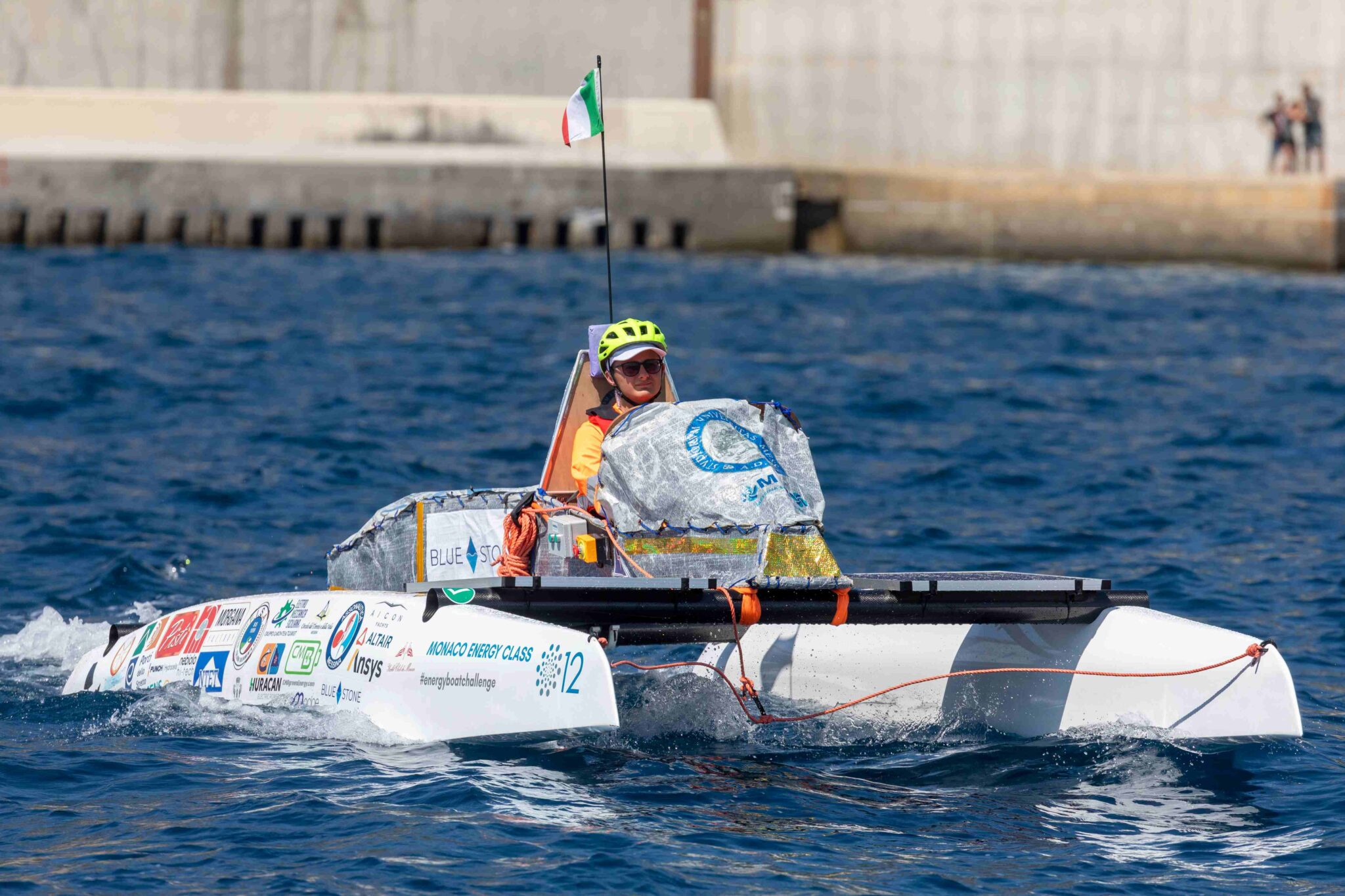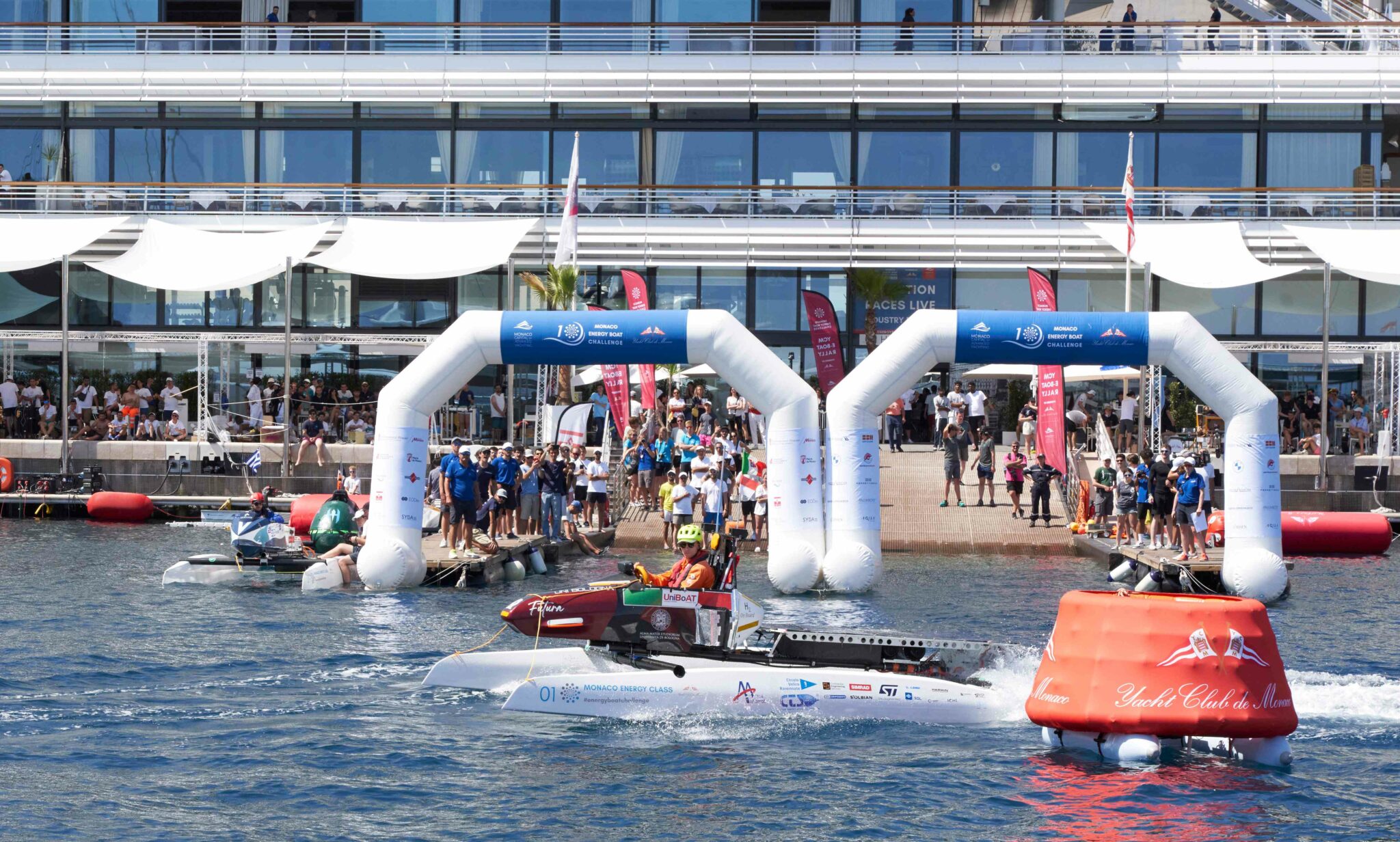Jeudi 18 janvier 2024. La 11ème édition du Monaco Energy Boat Challenge (https://energyboatchallenge.com/) sera organisée, du 1er au 6 juillet, par le Yacht Club de Monaco, en partenariat avec la Fondation Prince Albert II de Monaco. Cet évènement réunit les principaux acteurs de l’industrie et l’avenir de l’ingénierie autour du thème de la propulsion alternative et de la durabilité. Il rassemble à la fois des bateaux déjà commercialisés ou sur le point de l’être, ainsi que des prototypes. Bernard d’Alessandri, Secrétaire Général du Yacht Club de Monaco souligne que « ce rendez-vous, placé sous le signe de la recherche et du développement en open source, sous forme d’épreuves nautiques, de tech talks et de conférence, vise à soutenir le développement de la transition énergétique pour construire le yachting de demain ».

Again this year, on the prototype side alongside the Solar and SeaLab categories, teams in the Energy Class are preparing to compete with their counterparts from all over the world. Twenty-one renowned universities have been selected for the 2024 edition, including the University of Cambridge in England, Pontifical Catholic University of Chile, Politecnico di Milano, Technical University of Berlin and many others, coming to demonstrate the potential of alternative propulsion. A total of 14 nations will be represented such as Canada, Croatia, Peru, Chili, China and Monaco.
Among these 21 teams using electric propulsion, there is a noticeable increase in the use of hydrogen for energy storage: nearly 50% of projects (ten) will showcase hybrid hydrogen technologies, with the remaining 11 opting for 100% lithium-ion battery energy storage.
A reminder that in 2023 the young Italian engineers from Uniboat won this category and will be keen to defend their title for the third year in a row. Launched in 2018 by YCM which supplies teams with a one design catamaran hull, the Energy Class calls on the ingenuity of participants who must design the cockpit and the most efficient and durable propulsion system, using alternative energies within a given quantity of energy (maximum 10kWh stored on board). New this year is that they are allowed to add foils.
Teams registering for the SeaLab and Solar categories will be confirmed on 29th March. Boats on the market coming to demonstrate their capabilities in the sea trials have until 15th May to declare their interest and register. For this 11th edition, supported by UBS, BMW, SBM Offshore and shipyards like Monaco Marine, Oceanco, Ferretti Group and San Lorenzo, 36 universities and nigh-on 20 electric boats already on the market are expected representing 27 nations, another record on the water with 55-plus zero-emission boats descending on the Principality in July.

This year for the first time we will see an Energy Class boat take flight. The prestigious University of Cambridge is making its debut with an ambitious project involving hydrofoils. Resembling small wings under the boat’s hull, hydrofoils generate lift which results in the hull literally flying just above the water, significantly increasing the speeds obtainable in this class.
Other teams are working on developing their own propulsion system and bespoke control system. As for propellers, profiles tailored to each event thanks to 3D printing will be used.
For its fourth participation, ENSTA Paris is attempting to make a difference by equipping its prototype with three engines to improve their boat’s manoeuvrability, inspired by differential propulsion systems found in some land vehicles and POD systems on boats.
In terms of propulsion, several other teams, like the Hydros Team (Indonesia) and Sea Sakthi (India) will be testing IE5-rated equipment (highest energy efficiency level rating for electric motors) on their prototypes.
As for the ten teams working on hydrogen solutions this year, the trend is leaning towards using PEM (Proton Exchange Membrane) fuel cells. These teams will be supplied with green hydrogen produced in the Principality, in collaboration with SBM Offshore.
A catalyst for innovative alternative propulsion systems, the Monaco Energy Boat Challenge, under the aegis of the collective ‘Monaco, Capital of Advanced Yachting’ approach, continues to chart a course towards a more sustainable future for the boating industry.
For more info: www.energyboatchallenge.com
Press contacts: Yacht Club de Monaco
Tel: +377 93 10 64 09 – Email: presse@ycm.org